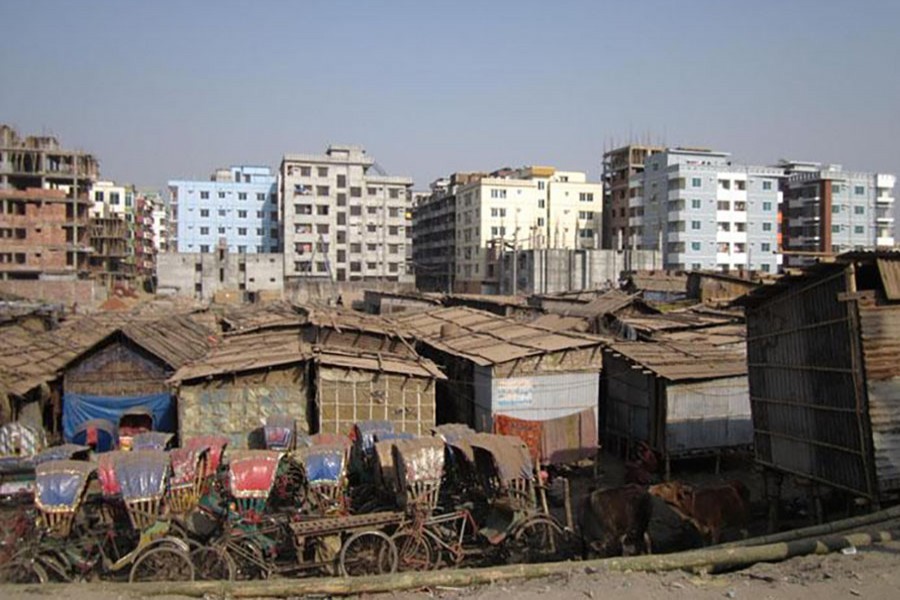Russia's abrupt u-turn from pulling out of the UN-brokered Black Sea grain initiative on Wednesday last will allow people in food-deficit countries around the world to heave a sigh of relief. Only four days ago on the weekend, Russian President Vladimir Putin's announcement of withdrawal from the agreement on safe grain shipment from Ukraine to countries in urgent need for food cast a dark shadow on the prospect of getting access to food for millions of people in Africa, the Middle-east and Asia.
The United Nations time and again have been sounding the alarm bell ringing about the spectre of a global famine that looms large not at too distant a horizon. Next year, according to the UN World Food Programme (WFP), 345 million people are going to face acute food insecurity in 82 countries. The number of food-insecure people is now double the number there was in these countries before the pandemic struck in 2020. In 2021, 2.3 billion people were afflicted with moderate to severe food crisis. Before they could recover from the shock, their turnaround was once again halted by high energy prices in the international market and disruption of cereal supply on account of the Russia-Ukraine war.
Had the world powers been not on a collision course, the unilateral moratorium put on fossil fuel extraction and supply on international market could be avoided and the atrocious price escalation arrested. Abnormal price rise of oil started a chain reaction to push up prices of food grains and other essentials. The two warring parties are major food exporters and Kyiv could not export cereals because of Russian naval blockade of the Black Sea and Russia cannot as yet export its wheat on account of Western sanctions on the federation's export.
The authorities in Bangladesh have been assuring that the country is under no threat of starvation because it has enough stock of rice. Even if this claim can be substantiated, Boro crop losses to floods in the Sylhet's haor region and damage to Aman paddy on account of Sitrang in the coastal belt will definitely deplete the estimated yield. The low procurement prices of Aman, as announced by the government, will hardly help raise its stock. Again, Bangladesh's late drive for import of rice did not make much of a headway with the major rice exporting countries either slapping a ban on export or curtailing export volumes. This has further triggered the price escalation of food grains on the international market.
Yet, Bangladesh may not be in a serious crisis in terms of its food stock next year---the time the UN's WFP cites to be the critical year --- unless natural calamities wreak havoc with its peak Boro crops scheduled for cultivation within a month and harvesting by January and early February. But the problem is not with the stock of food grains in the country, it is with people's access to foods. Already, skyrocketing prices of foods ---indeed, all kinds of food grains ---have seriously affected 68 per cent of the population here, according to the WFP.
Right now, prices of rice, wheat and corn have soared to record levels with rice registering 12 per cent, wheat 70 per cent and corn 33 per cent higher prices compared to the previous year. This has squeezed the purchasing power of 68 per cent people further, the lower-income groups' only more so, because never before did all three cereals register such price jumps together. Then unbridled price escalation of other essentials including toiletries has only forced them to have their back to the wall. In the absence of nutrient foods, their health will be compromised and in the absence of adequate use of cleaning materials of living quarters, their personal hygiene too will be compromised. The overall living standard of a large segment of people is thus set to decline.
For a significant portion of the population access to food will, however, be very difficult. With their meagre income they have already started escaping meals, according to reports. Instead of taking breakfast and lunch, they eat a meal in between. It may not be called famine but is definitely a sort of starvation in the face of market volatility. The government's vulnerable group feeding and other programmes have been quite useful for many but still there remain a large number of new poor and vulnerable people to be covered by those initiatives.
There have been allegations of irregularities in identifying or selecting the deserving candidates for food support. Cards were issued to non-deserving people leaving the most vulnerable out of the list. True, the floating poor in the cities pose some problem for their inclusion in such a list but those with a more or less permanent address whether in the slums or in rented shacks or in villages can easily be spotted and enlisted. Sincerity of the local representatives is what really counts in this regard.
With falling remittance and export earning, the government is running out of funds. The record fall of Taka against dollar has further worsened its capacity for generosity. At a time like this, the option open to the administration is to collect higher revenue from the high-performing sectors that have created a band of rich and superrich in this country. Only then a modicum of reasonable distribution of economic justice in society can be possible.
nilratanhalder2000@yahoo.com


